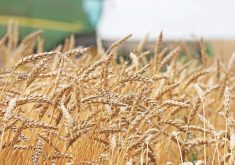Glacier FarmMedia | MarketsFarm — Agriculture and Agri-Food Canada raised its 2025/26 production calls for dry peas and lentils from its July report. AAFC issued its latest monthly report on Aug. 20, and adjusted exports, domestic usage and ending stocks.
These revisions to Canada’s two main pulse crops came ahead of the Statistics Canada crop production report scheduled for Aug. 28. Both federal agencies use satellite imagery and models to reach their forecasts.
AAFC added 300,000 tonnes to its August projection on Canada’s dry peas, bringing it to 3.50 million tonnes. Compared to last year, the country’s farmers are expected to reap an additional 503,000 tonnes of dry peas than in 2024/25. That’s based on area harvested increasing by 109,000 hectares and yields improving to 2.52 tonnes per hectare from last year’s 2.34.
Read Also

ICE Canada Weekly: U.S. biodiesel mandate will be a boon for canola
Canola is poised for more gains as the trade awaits the Trump administration’s decision on the latest biodiesel mandate, said Jamie Wilton, broker with RJ O’Brien in Winnipeg.
Dry pea exports were nudged up by 100,000 tonnes to now 2.10 million, but that’s a little short of 2.20 million in 2024/25. Meanwhile, domestic usage for 2025/26 remains at July’s call of 670,000 tonnes, which would be 58,000 tonnes for than last year.
That led AAFC to raise its call on ending stocks, which dry peas now at 1.275 million tonnes versus 975,000 last month. Either way, that’s much larger than the 2024/25 carryover of 525,000 tonnes.
Lentils, Canada’s number two pulse crop, saw more muted changes from AAFC. Production for this year was raised by 150,000 tonnes at 2.60 million, with harvested area to expand 57,000 hectares at 1.75 million and yields to nudge up to 1.49 t/ha from 1.44.
AAFC held the lentil export program at 2.10 million tonnes, 200,000 more than in 2024/25. Domestic use remained at 300,000 tonnes, trimmed back from 316,000 a year ago.
Ending stocks were increased to 780,000 tonnes from 530,000 AAFC estimated in July. The latest figure is significantly higher than 505,000 tonnes held over for 2024/25.















